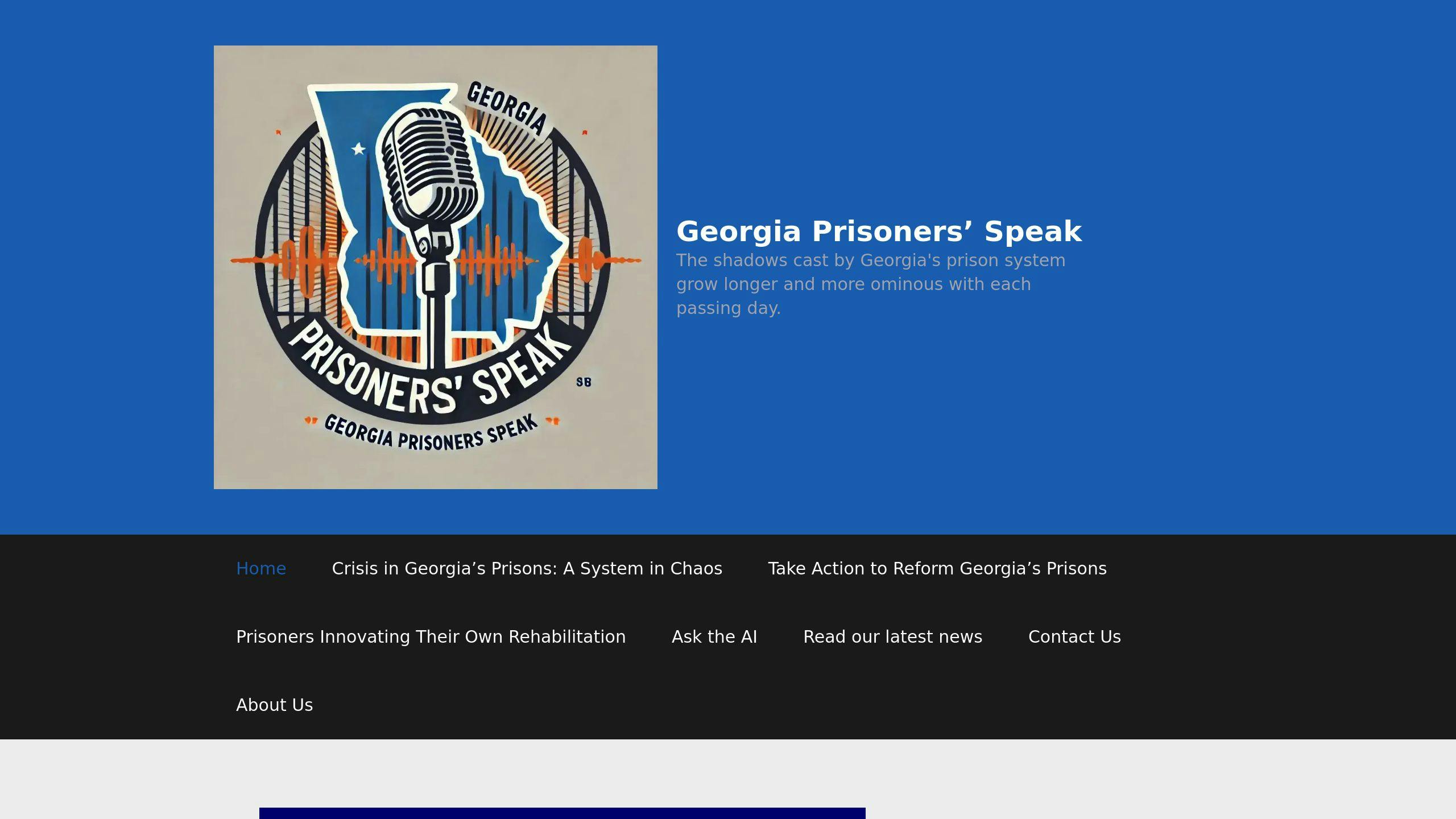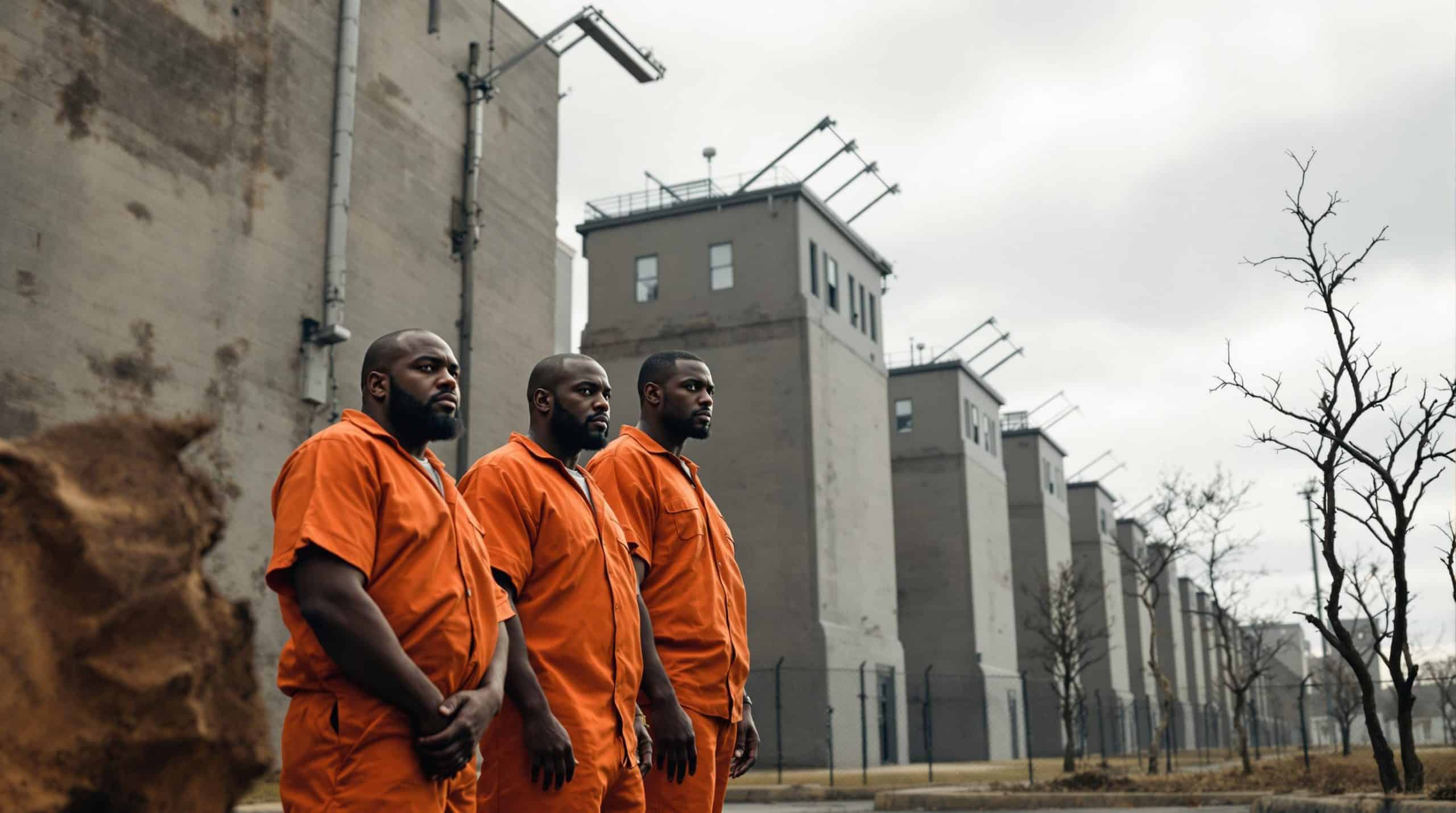Georgia’s prisons are in crisis. A Department of Justice (DOJ) investigation reveals alarming issues: severe understaffing, unchecked violence, and constitutional violations. Between 2018 and 2023, over 142 homicides occurred in Georgia prisons, with 35 in 2023 alone. Update for 2024: there were 330 deaths including 100 homicides, far exceeding casualties in Staffing shortages, exceeding 60% in many facilities, have fueled violence, contraband, and gang activity. Vulnerable groups, including LGBTQ+ inmates, face heightened risks due to inadequate protections.
Key Findings:
- Violence Surge: 142 homicides, 1,000+ assaults, and 300 stabbings since 2018.
- Staffing Crisis: Vacancy rates over 60% in 18 facilities.
- Contraband & Gangs: Inmates using smuggled phones to organize crimes.
- Rights Violations: Eighth Amendment breaches, poor mental health care, and unsafe conditions.
The DOJ has given Georgia 49 days to respond with reforms or face legal action. Immediate priorities include hiring staff, improving security, and protecting at-risk populations. Without urgent change, these abuses will persist.
DOJ report calls conditions inside Georgia prisons ‘horrific’
Main Findings from the DOJ Report
Rising Violence and Homicides
The DOJ investigation uncovered a troubling rise in violence across Georgia’s prisons. Between 2018 and 2023, there were 142 homicides, over 1,000 assaults, and 300 stabbings. Homicides alone surged by 95.8% in the last three years of this period [2] [5].
Assistant Attorney General Kristen Clarke highlighted the gravity of the situation:
“In America, time in prison should not be a sentence to death, torture or rape” [3].
Impact of Understaffing
The report also emphasized the dire understaffing in Georgia’s prisons. By the end of 2023, 18 facilities under the Georgia Department of Corrections (GDC) reported over 60% of their positions unfilled, with 10 of these facilities exceeding 70% vacancy rates [5]. This lack of personnel has made it nearly impossible to maintain proper supervision, putting both inmates and staff at risk [5].
Contraband and Gang Activity
Staff shortages have also allowed contraband and gang operations to thrive. Contraband cellphones, for instance, have been used by inmates to plan violent crimes, including a 2021 drive-by shooting [5]. In 2023, a federal indictment charged 23 individuals – some of whom were inmates – for organizing violent acts from inside GDC facilities [5].
The depth of neglect was further highlighted by the horrific 2022 death of Lashawn Johnson, who died after being “eaten alive” by insects and bedbugs. This case starkly illustrates the consequences of insufficient oversight and poor living conditions [1].
sbb-itb-7858f51
Rights Violations and Vulnerable Groups
Risks for LGBTQ+ and Vulnerable Inmates
A Department of Justice (DOJ) investigation revealed serious shortcomings in how Georgia’s prison system handles vulnerable populations, especially LGBTQ+ individuals and those with mental health challenges. These gaps in classification and protection leave these groups at heightened risk of harm [3][4].
One harrowing example is the case of a transgender woman who was sexually assaulted at knifepoint after being placed in a male facility without adequate safeguards [4]. Additionally, over 62% of inmates reportedly struggle with mental health or substance use disorders, with those having a history of mental health issues facing even greater dangers. This builds on earlier findings of insufficient care and oversight within the system [1][2].
Legal and Ethical Concerns
The conditions in Georgia’s prisons blatantly violate constitutional rights, particularly the Eighth Amendment, which prohibits cruel and unusual punishment. Assistant Attorney General Kristen Clarke highlighted this issue, stating:
“People do not abandon their civil and constitutional rights at the jailhouse door” [1][2].
Beyond constitutional breaches, these conditions also violate domestic and international legal standards. Chronic understaffing, poor medical care, and the inability to prevent violence have created environments that, in some cases, amount to inhumane treatment [1][2][3].
The DOJ identified several critical failures:
- Lack of action on known risks
- Poor risk identification processes
- Inadequate mental health services
- Weak accountability measures
These findings paint a grim picture of neglect and systemic indifference, underscoring the urgent need for reform in Georgia’s prison system. The situation demands immediate advocacy and action to address these violations [3][4].
Advocacy and Reform Efforts
Georgia Prisoners’ Speak (GPS) and Its Role

Georgia Prisoners’ Speak (GPS) is a grassroots group working to shed light on issues in Georgia’s prison system. By highlighting the voices of those incarcerated and documenting violations of constitutional rights, GPS raises public awareness and pushes for change. The group has led impactful campaigns addressing problems like inadequate food and poor living conditions [6].
GPS partners with organizations like Ignite Justice to strengthen its advocacy efforts [6][7]. They offer resources to help the public get involved and maintain a database tracking prison conditions. Their findings often align with the Department of Justice’s (DOJ) reports, underscoring the urgent need for accountability. These grassroots actions support broader efforts to enforce the DOJ’s recommendations and ensure Georgia is held responsible.
Efforts to Hold Georgia Accountable
Current reform efforts aim to tackle the staffing crisis, rising violence, and the protection of at-risk populations. This includes improving recruitment strategies, tightening security measures, and creating specialized housing units [4].
Advocates are working to implement the DOJ’s recommendations as quickly as possible, using legislative advocacy and legal challenges. A major focus is on the severe understaffing that has allowed gangs to take control in many prison units [4].
Transparency is a key part of these efforts. Advocates are staying connected with those incarcerated, documenting violations, and engaging directly with policymakers. While progress has been slow, these actions are laying the foundation for meaningful change.
Conclusion: The Need for Immediate Action
Urgent Steps for Stakeholders
The Department of Justice (DOJ) has exposed a dire situation in Georgia’s prison system that can’t be ignored. With staffing shortages exceeding 60%, violence runs rampant in facilities statewide. The DOJ’s 13-page report gives Georgia just 49 days to respond before legal action begins [3]. While immediate fixes are necessary, long-lasting improvements will require a well-thought-out plan.
Priorities for Long-Term Reform
To address the crisis effectively, efforts should target these key areas:
| Focus Area | Key Actions | Expected Results |
|---|---|---|
| Staffing Issues | Hire to fill vacancies | Better control, reduced chaos |
| Security Upgrades | Stop contraband, reassess inmate classifications | Safer environment |
| Protect At-Risk Groups | Build secure housing for vulnerable populations | Fewer assaults, improved care |
State officials, prison leaders, and advocacy groups must work together to implement these changes. The DOJ’s recommendations outline a path forward, but success hinges on swift action and regular progress checks. Without decisive steps, the constitutional violations and human rights abuses within Georgia’s prisons will only worsen, endangering even more lives [3][4].
